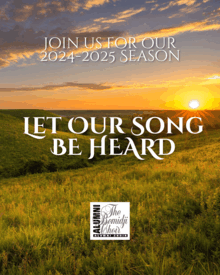 Sell tickets and manage registrations
Sell tickets and manage registrations
 View my tickets and registrations
View my tickets and registrations
 Sell more tickets through digital marketing
Sell more tickets through digital marketing
 Add an event calendar to your website
Add an event calendar to your website
 Find events by location and categories
Find events by location and categories

Ecopyschology, A Three Part Series -Michelle Doerr, MS
This series of workshops offer an understanding of ecopsychology and the various ways nature can act as a conduit for healing for individuals, couples, families and groups. According to science, nature reduces fear, anxiety and stress and we are going to experience this for ourselves throughout this series. Through appreciation and reciprocity with nature (giving something back), we develop our own wellness and understand better what we need to do to protect our natural world for the future (ecoresilience). Just by being outdoors, therapists also receive the therapeutic benefits of nature to prevent burnout. Participants will practice several therapy techniques in the group. We will begin to uncover the effects of global warming, species extinction, environmental catastrophies and factory farming on our psyche (ecogrief). We will also cover research, ethical considerations of taking clients outdoors and several types of nature-related therapy such as animal-assisted therapy and forest bathing. Participants will obtain a Certificate of Attendance in Ecopsychology from Adler Graduate School by attending all three sessions. However, all sessions are also designed to stand alone should participants not be able to attend all three. Each workshop is six classroom hours or a total of eighteen for the Certificate. Participants should be dressed appropriately to go outside including footwear and rain gear if necessary. We will meet at a nearby park during one of the workshops and use the grounds at Adler Graduate School. Bring your own lunch. This workshop meets on 8/16, 9/20 and 10/11, 2019. Participants attending all three workshops will be able to: Assess and write an environmental identity to structure an outdoor experience for wellness and therapy State the three dimensions of ecowellness and apply those to Adler’s five life tasks State a conclusion between nature connectedness components and Adler’s three human goals Claim their own transcendent qualities of nature Name at least three types of ecotherapy practices involving specific plants and animals Characterize at least two aspects of ecogrief and how reciprocity with nature heals Characterize topophilia and affirm their own principal place for wellness to prevent burnout Name at least three research sources supporting nature-based interventions State at least three risk-management issues related to outdoor therapy/wellness Workshop One: EcoWellness This workshop is the first in the series of three and will unearth the dimensions of Ecowellness (environmental identity, nature access and transcendence) based on Adlerian wellness models (Reese and Myers 2012). We will correlate human goals of safety, significance and belonging to nature connectedness and will reflect on personal experiences and case study to claim our environmental identity. Participants will be able to use several assessments (childhood early recollections in nature, nature-relatedness score and sensory awareness inventory) provided during the session to assess individual, couple or family environmental identities. These assessments can be used to develop nature-therapy strategies for clients. Be prepared to go outdoors with appropriate outdoor clothing and footwear. Workshop Two: Deep Experiences in Nature for Therapy This workshop is the second is a series of three and is designed to reveal how outdoor experiences in local environments aid in focusing and wellness. Using an Adlerian process, we will translate our experience with reference to nature’s wellness qualities and learn how to structure an outdoor experience for wellness and therapy. We will discuss and practice reciprocity in nature to lead clients to a deeper understanding of their place in the world. Several types of ecotherapy practices will be described and sources for further study provided. Most of this workshop will be held outdoors, so dress appropriately. Workshop Three: Research, Ethics and Developing Ecoresilience Our final of three workshops will analyze some of the research evidence in the field of ecopsychology and human/nature connection as well as important ethical considerations when taking clients outdoors. Factory farming and its effect on rural life will be used as a case study to characterize aspects of ecogrief. We will apply Adler’s five life tasks (self, social, work, spirituality and love) to ecowellness. We will discuss topophilia (sense of place) and participants will affirm their own principal place for wellness for prevention of burnout. This session will likely be held indoors, although be prepared to go outdoors as well.












